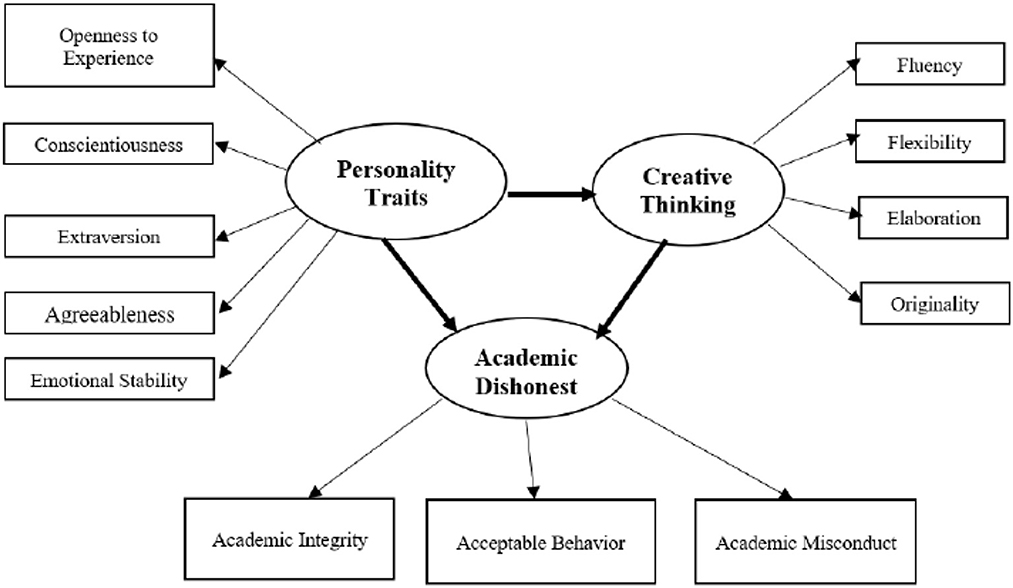Does creative thinking contribute to the academic integrity of education students?
- 1Behavioural Studies Department, Zefat Academic College, Safed, Israel
- 2Faculty of Sciences, Kibbutzim College of Education, Technology and the Arts, Tel-Aviv, Israel
A corrigendum on
Does creative thinking contribute to the academic integrity of education students?
by Eshet, Y., and Margaliot, A. (2022). Front. Psychol. 13:925195. doi: 10.3389/fpsyg.2022.925195
In the published article, there was an error in Figure 1 as published. The “Creative Thinking” ellipse was erroneously switched with the “Personality Traits” ellipse. The corrected Figure 1 appears below.

Figure 1. Structural model for creative thinking, personality traits, and academic dishonesty in education students.
The authors apologize for this error and state that this does not change the scientific conclusions of the article in any way. The original article has been updated.
Publisher's note
All claims expressed in this article are solely those of the authors and do not necessarily represent those of their affiliated organizations, or those of the publisher, the editors and the reviewers. Any product that may be evaluated in this article, or claim that may be made by its manufacturer, is not guaranteed or endorsed by the publisher.
Keywords: creativity, academic integrity, big five-personality, academic dishonesty, creative-thinking preferences
Citation: Eshet Y and Margaliot A (2023) Corrigendum: Does creative thinking contribute to the academic integrity of education students? Front. Psychol. 14:1274437. doi: 10.3389/fpsyg.2023.1274437
Received: 08 August 2023; Accepted: 12 October 2023;
Published: 25 October 2023.
Edited and Reviewed by: Chong Chen, Yamaguchi University Graduate School of Medicine, Japan
Copyright © 2023 Eshet and Margaliot. This is an open-access article distributed under the terms of the Creative Commons Attribution License (CC BY). The use, distribution or reproduction in other forums is permitted, provided the original author(s) and the copyright owner(s) are credited and that the original publication in this journal is cited, in accordance with accepted academic practice. No use, distribution or reproduction is permitted which does not comply with these terms.
*Correspondence: Yovav Eshet, eW92YXZlQHplZmF0LmFjLmls
 Yovav Eshet
Yovav Eshet Adva Margaliot
Adva Margaliot